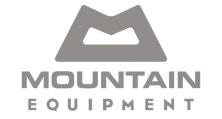Tracking
the Journey
-
Distance to go:
0 Mi
Distance
Ben and Tarka will cover 1800 miles starting from Scott's Terra Nova Hut at the edge of Antarctica to the South Pole and back to the coast again. That's equivalent to 69 back-to-back marathons hauling up to 200kg each (the weight of roughly two adult men) of kit and supplies necessary to survive.
Distances here are shown in statute miles.
Resupply (Day 70)

I'm sorry to have kept you waiting for this update; you might have seen from the tracker that we haven't moved for a while, and you may be wondering what's up. For more than a decade I've been trying to get to the start line of this expedition, and for more than a decade I've been talking about how it would be a journey that was at the very limits of human endurance. Today, in hindsight, I wonder if I really appreciated how prescient and accurate that glib statement was, and yet how little I knew about where that journey would lead me, and what it would take for Tarka and me to dig so deep.
Part of the appeal of this expedition to me was that it seemed just about possible. Roger Mear, one of Robert Swan's team that completed Scott's one-way journey to the Pole in the mid-eighties said they didn't entertain the thought of unsupported return journey as it was plainly "impossible" to haul enough food and fuel. Both Scott and Shackleton, of course, had pre-positioned depots the year before their Pole attempts, and then had further teams hauling provisions for them all the way to the Plateau, peeling away one by one like booster rockets falling back to earth. Scott himself didn't put his own sledge harness on until he got to the base of the Beardmore Glacier, and at most his men pulled just over 90kg each.
By contrast, Tarka and I pulled 200kg each at the start, heavier loads per man than Scott's weakest two ponies each dragged. Peter McDowell, one of the senior directors of ALE, described it as "Fifty percent harder" than anything he had seen in his time supporting Antarctic expeditions. We gambled on getting faster as our loads lightened, and based on our training and experience, Tarka and I had secretly set ourselves the goal of covering 42km -a full marathon- per day on our return from the Pole to the Beardmore. We planned our food and fuel to match, going light and -we hoped- fast, with almost no leeway for error or a let-up in pace. This is why we did such a big day to turn at the Pole, and why we've had no time to rest properly since. We had two-and-a-half hours' sleep on our Pole day, and haven't had more than five hour's sleep for nearly two months. Our only full rest day was 55 days ago. The toll this effort has taken has been quite something, and the speed we hoped for never came.
Our near-empty sledges still felt heavy and the energy that carried us up the Beardmore, and indeed to the Pole itself in record time despite dragging more than anyone in history, started to wane dramatically in the last few days. What's more, we've been running lower on food as we failed to meet our mileage targets. Six days ago we started to eat half rations, and I've felt shattered every day since, aware that I was depleting my body at a rate that might have been reckless. My stomach growled permanently, my ribs became more prominent by the day, my legs were painfully weak and my mind and thoughts and decision-making grew foggy and dim. On our second day of half-rations I got dangerously cold when I had to remove my outer jacket in the middle of a storm to add more insulating layers, and it was only Tarka's help -zipping up my jackets like I was a toddler while my cold hands hung useless by my side- that got me out of trouble and through a very dark day indeed.
I've been reluctant to say so (sorry mum!) but we've both been on the ragged edge for a while now, and on New Year's Eve, we set out on what was to prove the hardest day of the expedition. It was Tarka's turn this time to struggle, and I'd reached a state where I was barely able to realise it. The windchill was -45 degrees centigrade when I recorded it, and we stayed outside for more than 13 hours, on fifty percent of the food I'd intended and wearing almost all the clothes we had with us. At breaks we would eat halved energy bars and our normally-sweet drinks tasted like lukewarm dishwater with a hint of lemon. Towards the eighth or ninth hour Tarka's normally rock-steady metronomic pace started to become erratic and he seemed to stagger and stumble more than usual on ridges and divots in the snow surface. He stopped mid-session, in a howling blizzard, to remove his outer gilet (the Primaloft-insulated Mountain Equipment Compressor vests that have served us so well here) and flipped back his hood as if he were too hot. I know -as a professional leader of expeditions to the coldest places on the planet- that these are tell-tale signs of hypothermia, yet I was on the limit myself and failed to react. All I can remember from that afternoon that drifted into evening, with the dim sun slowly wheeling around us and the horizon erasing itself and reappearing again in the whirling fog of spindrift, was being unable to think of anything more than the battle raging in my head against the part of me that wanted so desperately to stop. Just to lean my shoulders on my ski poles and slump forwards against the resistance of my harness and rest, and to hell with the consequences. I wondered at times if I fell over whether I'd have the strength to stand up again, the energy to yell for Tarka, or whether he'd even notice me calling over the noise of the wind.
When I took over the lead I kept turning back to see Tarka -normally right on my heels- drifting further behind me. I stopped a few times to let him catch up, but it was too cold for me to wait for more than a minute or two before I started shivering, so I raised a single ski pole, he raised his in reply -a signal we've often used here- and I shuffled on. After doing this a few times, with Tarka receding as if the horizon was sucking him backward like quicksand, he stopped raising his pole. I waited, but by now he was a tiny dark speck in the white that took forever to grow. I unclipped my harness and started to put the tent up, feeling dizzy and breathless myself, and taking what seemed like ages to match the poles to their corresponding fabric sleeves, like a drunk taking some sort of coordination test. "Sorry I'm late", said Tarka as he arrived, but it sounded like someone else entirely, his words mumbled and slow.
As we finished slowly setting up camp, I saw he was fumbling in his giant outer mittens with the plastic buckles that strap our sledges closed. "I can't feel my hands", he said through a mask encrusted with ice, his shoulders slumped forwards. As we zipped ourselves into the porch of the tent to take our boots and outer layers off before climbing into our sleeping bags, we saw that the tips of his thumbs were at least badly frostnipped, if not lost entirely to frostbite. I remember feeling a mixture of fear and anger, both at him and at myself for letting this happen. I pulled up my jacket and fleece so he could warm his hands in my armpits, and to my relief the colour and circulation started to return. We ate our watery half-dinners in near-silence and fell asleep exhausted and cold, knowing we would have to match the same distance the next day.
Our depot was still 74km away and we had barely more than half a day's food to reach it; eight energy bars each, half a breakfast and half an evening meal. 16km into the following day Tarka started to slow again as he led, before stopping entirely and waving me forward to talk. "I feel really weak in the legs again", he said. "OK. What do you want to do?" I answered snappily, before realising this was on me. I came here to be challenged and tested, to give my all to the hardest task I have ever set myself and to the biggest dream I have ever had. And here was the crux. This was the moment that mattered, not standing by the Pole having my photograph taken, but standing next to my friend, in a howling gale, miles away from anyone or anything. "Let's put the tent up", I said, "I've got an idea".
My idea was to call for a resupply. To have more food and fuel flown to our position so that we could rest and recover before finishing this journey. A decision that changes the status of this expedition from "unsupported" or "unassisted" or whatever semantics you wish to choose to the opposite. Part of me also feels it inevitable that we and this journey would face critics even if we'd done it in period clothing eating pemmican and pony meat. Yet in an instant I realised that my and Tarka's lives are not something I wanted to gamble with, and that we had given our all. We were lucky that neither of us had collapsed the day before, and I knew we couldn't possibly have hoped to recover on our meagre rations from the physical holes we'd dug ourselves into.
At the other end of the world, on the other end of a crackling and hissing satellite phone line, our expedition manager Andy Ward sprang into action, and things happened incredibly quickly, with a ski-plane carrying eight days' of rations landing twelve hours later. The weather worsened as we waited and I feared the flight would be aborted, or that a bag would be air-dropped at speed and lost in the blizzard, but in a beautiful twist of what some might call fate, the pilot was Troy, the same man that picked me up from the Arctic Ocean after my 72-day solo expedition nearly ten years ago, and in my eyes the finest polar pilot in the world. The Twin Otter appeared through a tiny hole in the rolling cloud and swang over us once before landing on the ridged and uneven snow surface and taxiing right up to our tent, its wing-tip almost above our roof. The wind was still blasting and the plane's skis were almost hidden under the blowing snow. "I'm sorry about the weather", I said to Troy, amazed that he'd been able to land. "Oh, it was fine", he replied modestly.
The hours we spent waiting were, I fear, dark ones for Tarka. He seemed a broken man. "It'll look like my fault", he said, "and that's a good thing for you." This was Tarka through and through. Weeks ago he said humbly, "If there are media at the airport when we get back, I'm happy to help with the bags while you talk to them." He finally admitted last night that when I was struggling (and if I'm honest now, on the verge of wanting to quit) a few weeks ago he'd taken food bags from my sledge while I was in the tent to help lighten my load without telling me, so he'd been pulling more weight than me for weeks.
Tarka is the hero here, and the irony of our situation is that I would never have made it to this point without his herculean efforts; his giving everything he has to this goal. I'm proud of how deep we have each dug, and I am amazed and humbled by Tarka's sacrifice. He has pushed (or indeed pulled) himself until he dropped, and I'm also as exhausted as I've ever been. For weeks now I have slept fitfully and woken up cold. We are both alarmingly lean, and we have both struggled for a while to maintain trains of thought or decent conversations. I suspect my writing has been going downhill too.
And now we are lying here resting, like two new men after ten hours' sleep, full-bellied and warm again for the first time in weeks, before we move north again to complete this unfinished journey. Our status has changed, but how little that means to me now. Scott didn't wear his harness until the Beardmore and would have been "supported" in modern polar parlance. I don't think we made any mistakes, and I don't think we could have done anything more, or pulled any more food up here. We travelled 5.6km per day at the start with 200kg per man, greater loads than each of Scott's weakest ponies hauled.
I know a few commentators have suggested that we've been "lucky" with weather and surface compared to a century ago, but I don't believe this is true. Our luck is in having GPS units that allow us to ski blind into whiteouts, in having synthetic skins on our skis that allow us to grip, and in having the nutrition and fitness and clothing to survive dragging loads that would have been unthinkable in that era. We have had no choice but to move every day, whatever the weather, for more than 70 hours per week of intense physical exertion, twice as much as a Tour de France cyclist, over ten weeks and not three.
Now my head is clearer and my body is recovering, I think of status and records and achievement and impermanence. Every gold medal one day ends up in a collectors' cabinet, an auction lot or a drawer in an antique shop. Trophies oxidise, the ribbons of rosettes curl and fade. I don't know where my proudly-won Scout badges are now. I hope our journey has not been diminished in your eyes now it is "imperfect". Yet of course for us humans, perfection can never really be reached, contentment is either here today, with the striving and the mess we all inhabit, all open loops and half-finished lists and could-do-better-next-times, or we will never find it. And the biggest lessons -to me at least- of this very long, very hard walk, are perhaps that compassion is more important than glory. Friendship and kindness and taking care of each other -like Tarka secretly removing weight from my sledge- matter more than achievement or status. The joy of being outdoors and alive in the wild, pushing ourselves harder than anyone will ever understand, will I think in time prove more wholesome and satisfying than the pride of any public recognition on our homecoming.
We're resting up today, we're safe, we're well, we'll do a shorter day north towards our mid-plateau depot tomorrow and we'll carry on home from there, retracing our steps to Ross Island. We're still in the process of making a journey that's never been done before, and I hope you'll still keep following. Tarka and I are humbled and grateful for your interest and support, and I am more thankful than I know how to say for Intel and Land Rover and all of our other partners for standing by us in our most trying days. Onwards.










Comments
# Jonny Rankin, January 2nd 2014
Dear Ben, Dear Tarka,
I’ve followed closely, shared and RT’d your posts throughout this expedition.
Restocking of vital supplies - as in life giving vital - in no way diminishes my excitement when I log onto Facebook in the morning and check your progress. I love it.
Like reading a book as it is written!
I’d much rather you got to the end and shared the whole experience, in celebration of Scott and your own achievements.
I cannot enjoy the finer detail of your trip, attend talks and read any resulting book if you perish on the ice.
You both rule massively. You are modern day heroes, you are my Scott. Whilst I enjoy reading about Scott I am actually living through your expedition.
Anyone detracting from your efforts is doing so from the comfort of their keyboard. Few if any understand your efforts - I don’t, no matter how many Ranulph Fiennes books I read!
You rule, both of you. Stay safe. Walk strong and rest well.
I hope to meet you one day and to celebrate your efforts in person.
Yours,
Jonny Rankin
# Kristoffer, January 2nd 2014
“Anyone detracting from your efforts is doing so from the comfort of their keyboard. Few if any understand your efforts - I don’t, no matter how many Ranulph Fiennes books I read!”
I’ve written about Fiennes’ faulty reasoning before, and I’ll say it again. Fiennes’ reasoning-and yours-arbitrarily dismisses anyone and everyone who writes about someone without living like they did. I wonder how willing you are to dismiss the historians you respect because Fiennes effectively tells you to do so?
# Lucy Scott (Scott's great granddaughter), January 3rd 2014
@kristoffer
Dear Mr Nelson-Kilger,
Why do you find it necessary to comment on so many other people’s posts? What do you hope to achieve by it? Personally, I don’t think it’s appropriate. I have resisted commenting to you for a long time, but I really think you need to learn when to stop, frankly.
I’m curious, and just an example of the value of experience…why do you think when employers advertise jobs, that in the specifications, they ask for people with relevant experience?
For an expedition logistics role, I think your CV would be the first in the bin!
There’s a huge amount of very good writings from people on matters without having experienced them within the annals of literature. However, a writer or a critic, in fact, without relevant experience, needs to demonstrate an understanding that there is, of course, an inevitable limitation in his or her field of knowledge and therefore his or her thoughts or theories on the matter. And write accordingly, and in an informed, and balanced manner.
You can read as many history books or source material on polar expeditions and quote as many figures as you like but without knowing how it feels to walk 20 plus miles a day in those conditions, (where there are also several variables to consider - surface conditions, terrain, temperature, wind chill, visibility, altitude, daily variances in the level of energy of the athletes, accumulated physical and mental toll, etc, etc) you will never have the same understanding of what it is like mentally or physically. Or in fact have an understanding of the logistical requirements of planning and orchestrating an unsupported expedition for 1800 miles across Antarctic terrain. In case you failed to realise, when Ben and Tarka started out..dragging 200kg is actually dragging a fifth of a ton of food and equipment. Your petty corrections and comments are completely void of any actual practical reality!
While I’m commenting Kristoffer…people are allowed to have their own opinions on Ranulph Fiennes and his writing on Scott, without being berated by you!
Kind regards,
Lucy Scott
# Amanda, January 2nd 2014
I have been following since day 1 after hearing your TED talk on exploration and adventure. To be honest, the specifics of the journey have never been of interest to me. In fact, when some commenters seek additional information about the details, I quickly become bored. No, I’m far more fascinated with the intent. It is remarkable to consider the spirit of a person willing to push themselves to the extreme limits of physical and mental challenge for precious little reward other than being able to say you accomplished something so rare.
Yesterday, I listened to another TED talk by Diana Nyad who last summer at the age of 64 became the first person to swim from Cuba to Key West without a shark cage. It took 35 years and 5 attempts before she accomplished her goal of swimming for two days and nights more than 100 miles. It’s simply remarkable. Her journey was hardly unsupported, but is still a roaring achievement.
This is a very long-winded way to say that while the nomenclature of your expedition may have changed a bit, nothing about the endurance, determination, courage and adventure has changed in either of you. I will continue to live vicariously through you both as you continue on your way now more fortified and very much alive.
Thank you for sharing this with us.
# George Chapman, January 2nd 2014
Wow. The moment I saw the plane I wondered if something had happened. I thought for the past week you were doing really well but I did not know your were running low on rations. I’m glad to see you did make the decision to ask for help. The frostbite and near exhaustion was a serious situation. I hope you got some good food delivered I’m sure you’re getting tired of those meals in a bag. I feel your pain about having to do this and call in for help but I’m sure at the end of the day it’s the best thing. Had not been closely following you the last day or so since we were only seeing movements once a day. I did notice this morning we received a short post. Praying all will go well for you the rest of the trip and you will make it down without needing more help more. Maybe you can slow down some since you should have plenty of food now even if it takes to day 120 or more. Not sure if there is some sort of actual deadline on getting out of there. Take care guys and I will be following you till the end.
# Allison & Mark, January 2nd 2014
Thank God you are safe. We were worried and I almost called at MCPO to check on a live update earlier today.
Both of you are an inspiration. We are following your every step in awe. High praise for you decision making. Not easy but the right one to make.
Stay safe.
# Sharyle, January 2nd 2014
Words cannot express how glad I am that you made the call for resupply and that you’re safe and resting. You are both heroes. Even though I’ve never met you, I feel I’ve gotten to know you a bit from following your adventure. You are both amazing. You are in the same league as Shackleton. Strong enough to do what needs to be done and smart enough to know when enough is enough. Take good care of yourselves and return safely.
# Leah, January 2nd 2014
OMG!
The tears are still rolling down my cheeks as I write this…. you guys are amazing and thank God you called in for supplies. Your first and foremost mission is to get back in one piece! Assisted or unassisted who cares!!! You are amazing in what you’ve accomplished so far and I am in owe of your ability to communicate so beutifully and honestly through it all.
Your friendship, love and humility in light of everything you two are going through is most inspiring.
I hope my children get to meet you two one day. You give me hope for this world we are living in.
May the force be with you all the way back home!!!!
# Theresa Bristow, January 2nd 2014
Sitting here in the warmth of my living room I can only wonder at your achievements. To acknowledge when you needed to call for help is one thing, but to be able to carry on with so much humility is another. Regardless of the poundage pulled, you are there doing the task. It is easy to criticise from the comfort of our living rooms. I, like the majority, won’t be.
You’re in my thoughts
Theresa, Nottingham
# McDowell Crook, January 2nd 2014
Stay strong guys and ignore what critics might say. Your achievements thus far are legendary, hands down. I’m just glad you’re both safe and were able to get the assistance you needed so quickly. You absolutely made the right call. Keep on truckin’!
# Martin Jansen, January 2nd 2014
Ben, Tarka,
I had a small lump in my throat when reading todays blog post and I’m usually not someone to weep easily. I can imagine that the decision to call for help was a hard one, but given the circumstances it seems like a no-brainer. Also, the fact that your endeavor isn’t unsupported anymore changes absolutely nothing for me and most folks around here. What you chaps are doing is incredible and something you can be proud of—notwithstanding that a guy dropped by with his plane and helped you out with some food when you needed it most.
NB: Big kudos to Andy and Troy for getting the supplies to the boys that fast. Chapeau.
Here is for a few more weeks of fun in the snow. Godspeed and enjoy the rest of your trip! :-)
# Guy Raz, January 2nd 2014
Ben,
It’s Guy Raz here from the TED Radio Hour. We are cheering for you here in Washington DC! Your journey is inspiring and your spirit is motivating to all of us watching. Onward!
Guy Raz and the TED Radio Hour team
NPR
Washington DC
And anyone interested in Ben’s segment from the TED Radio Hour can hear it here:
http://www.npr.org/2013/11/08/203390373/what-s-it-take-to-become-a-polar-explorer
# Matt HEALY , January 2nd 2014
The absolutely superb effort you both have made is in no way, I believe, diminished buy the decision you have had to make. You both have my full support and I will be hanging on every post from now until to arrive back at your starting point having successfully achieved your goal of retracing Scott’s steps. You both are an inspiration. I wish I had a millionth of your courage and drive and talent. Well done guys, truly brilliant rest up, eat and take care.
# Lee Ha, January 2nd 2014
In all ways you have done amazing things and continue to do them. We will continue to watch in awe and know your training, knowledge, compassion and common sense will be what sees you through to Ross Island. Take each moment as it comes and hold your heads high! Still cheering as loudly as ever from Vermont!